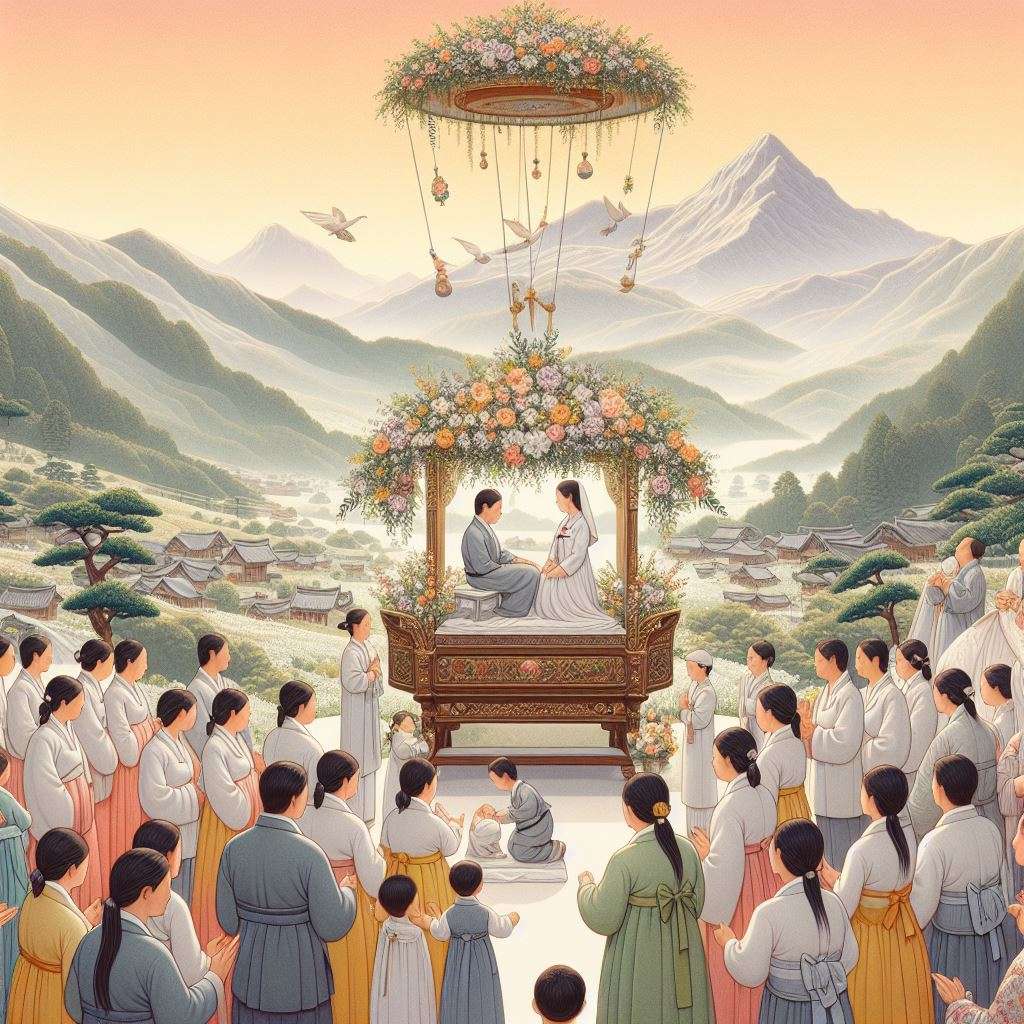
Korea Cultural Evolution
Historical Context
Traditionally, Korean society placed a strong emphasis on marriage and childbearing, viewing them as fundamental to maintaining the family lineage and fulfilling social responsibilities. This perspective was deeply rooted in Confucian ideals, which highly valued familial duties and social harmony.
Shift in Attitudes
In recent decades, there has been a noticeable shift in attitudes towards marriage and childbearing. Individualism has gradually taken precedence over collective family obligations, altering the perceived necessity of marriage and parenting. Younger generations are increasingly prioritizing personal fulfillment, career advancement, and financial stability over traditional familial roles.
Impact of Popular Culture
Korean popular culture, including K-dramas, movies, and music, often reflects and influences societal attitudes. The portrayal of independent lifestyles, career-oriented protagonists, and alternative family structures in these media forms has contributed to a broader acceptance of diverse life choices beyond the conventional marriage and childbearing paradigm.
Socio-Economic Factors
Economic Challenges
The economic landscape in Korea, characterized by high living costs, competitive job markets, and increasing housing prices, poses significant challenges for young adults. These economic pressures often delay or dissuade them from marriage and starting a family, as financial stability becomes a prerequisite.
Educational and Career Aspirations
The emphasis on education and career success has led many young Koreans to invest more time and resources in their personal and professional development. This focus often delays life events like marriage and parenthood, as achieving career goals and financial independence becomes a priority.
Government Policies
Pro-Natalist Policies
In response to declining birth rates, the Korean government has implemented various pro-natalist policies. These include financial incentives for families, improved parental leave, and support for childcare. However, the effectiveness of these policies is subject to ongoing debate.
Gender Equality and Family Support
Efforts to promote gender equality and better work-life balance are also part of the government’s strategy to encourage marriage and childbearing. Policies aimed at reducing the gender gap in the workplace and supporting dual-career families are increasingly relevant in this context.
Role of Technology
Online Dating and Social Media
The rise of online dating platforms and social media has transformed how relationships are formed in Korea. These technologies facilitate new ways of meeting potential partners and offer platforms for discussing and sharing ideas about marriage and family life.
Fertility and Health Technologies
Advancements in fertility treatments and reproductive health technologies have provided new options for couples facing challenges in conceiving. These technologies have also opened up discussions about alternative paths to parenthood, such as IVF, surrogacy, and adoption.
Global Influences
Exposure to Diverse Lifestyles
Globalization has exposed Koreans to a variety of lifestyles and family structures, broadening perspectives on marriage and childbearing. International travel, education abroad, and exposure to foreign media have contributed to this broadened worldview.
Comparative Analysis with Other Countries
Korea’s experience can be juxtaposed with trends in other countries facing similar demographic challenges, such as Japan and several European nations. Learning from these international examples, Korea is continuously adapting and evolving its approach to marriage and childbearing.
Conclusion
The journey of modern Korea in navigating the complexities of marriage and childbearing reflects a dynamic interplay of cultural, economic, technological, and global factors. While respecting traditional values, contemporary Korean society is forging a path that accommodates diverse personal choices, socio-economic realities, and evolving global trends. This journey is emblematic of a society in transition, actively seeking a balance between heritage and modernity in an ever-changing world.
The Vanishing Generation: Unpacking the Reasons Behind Korea’s Demographic Shift
Hi, I’m [jeybee]. As a long-time resident of Seoul, I’m passionate about uncovering the authentic, everyday magic of Korea. This blog is my way of sharing my favorite spots, tips, and cultural insights with you, beyond the usual tourist traps.

